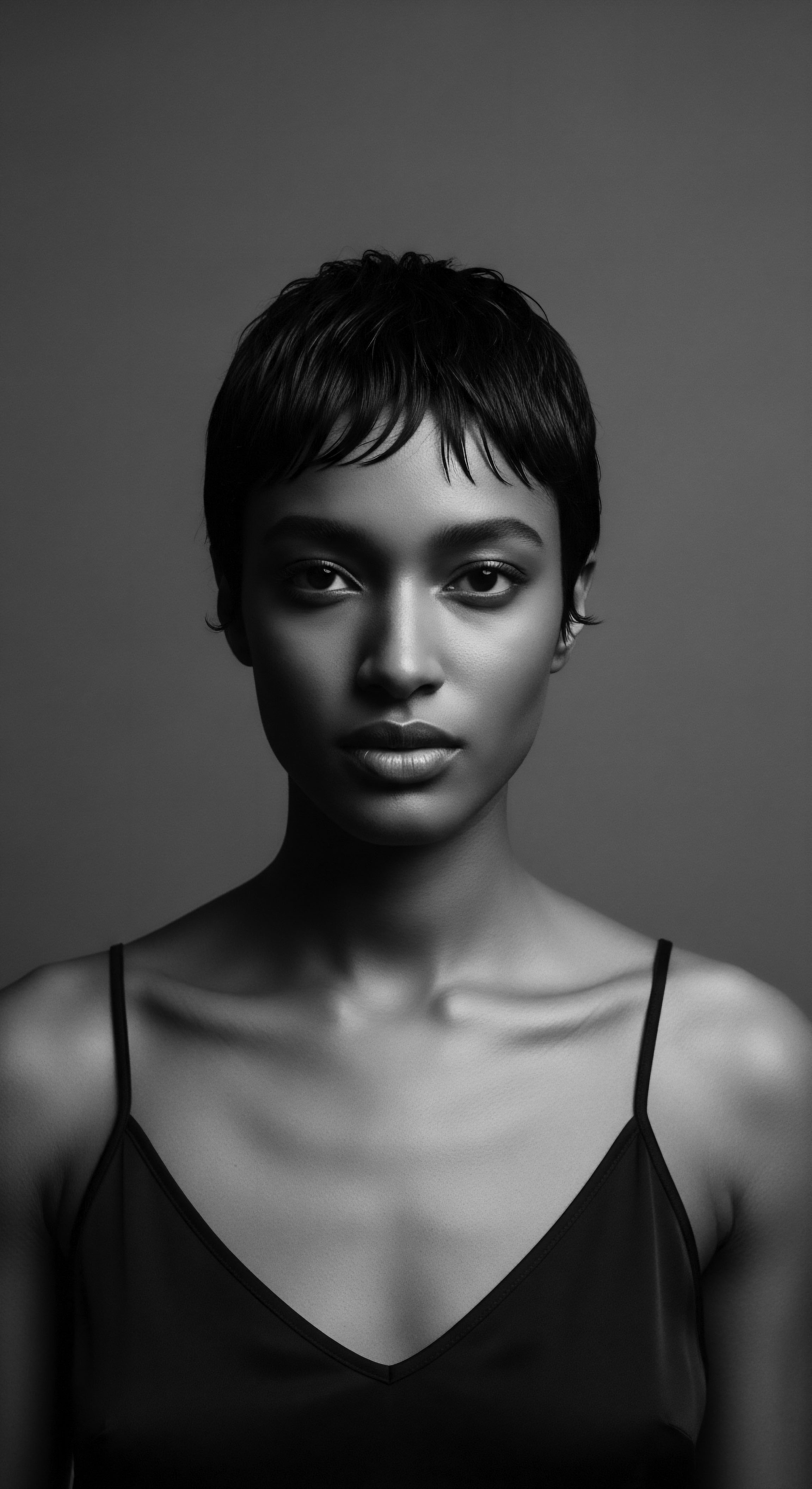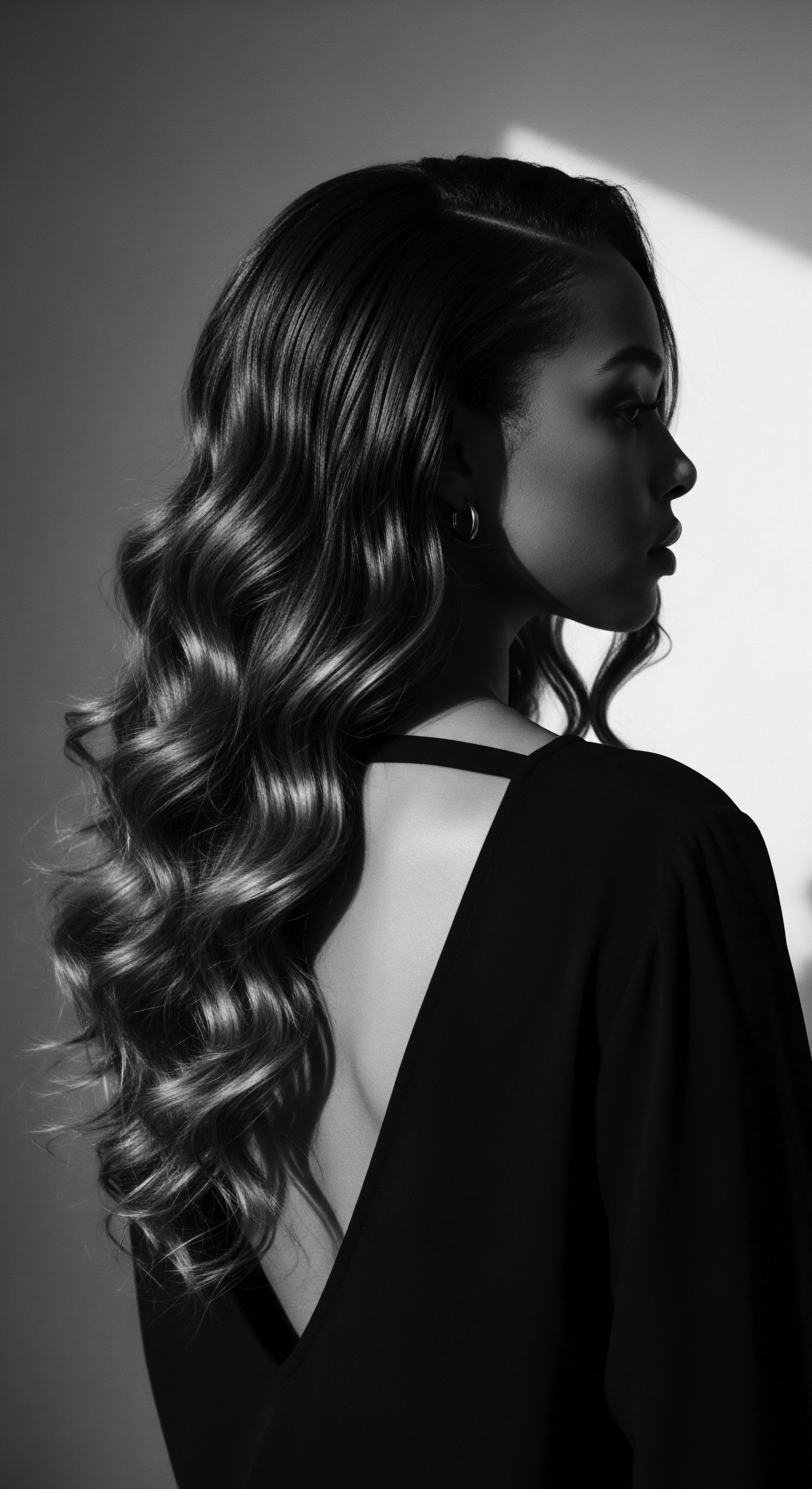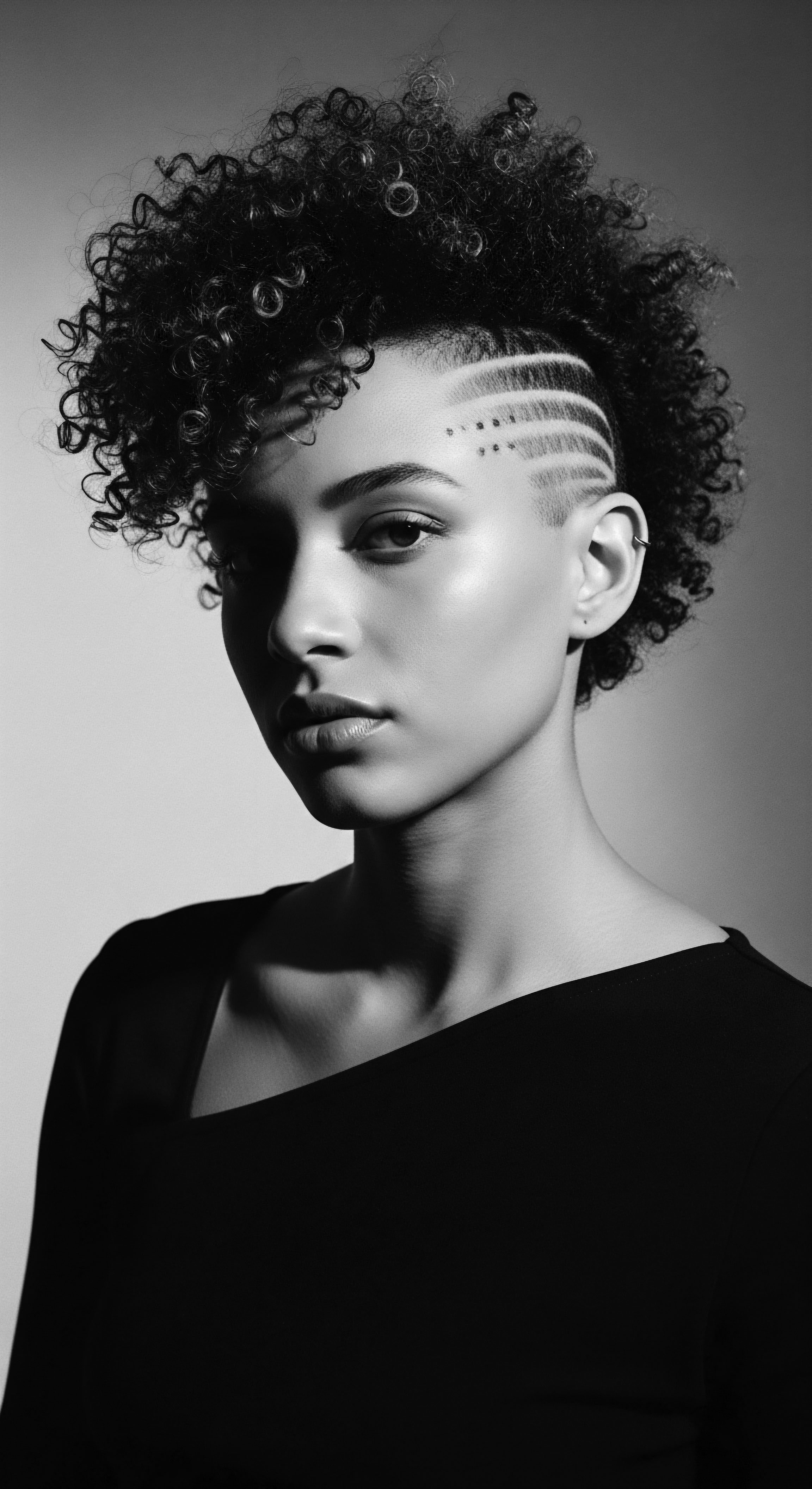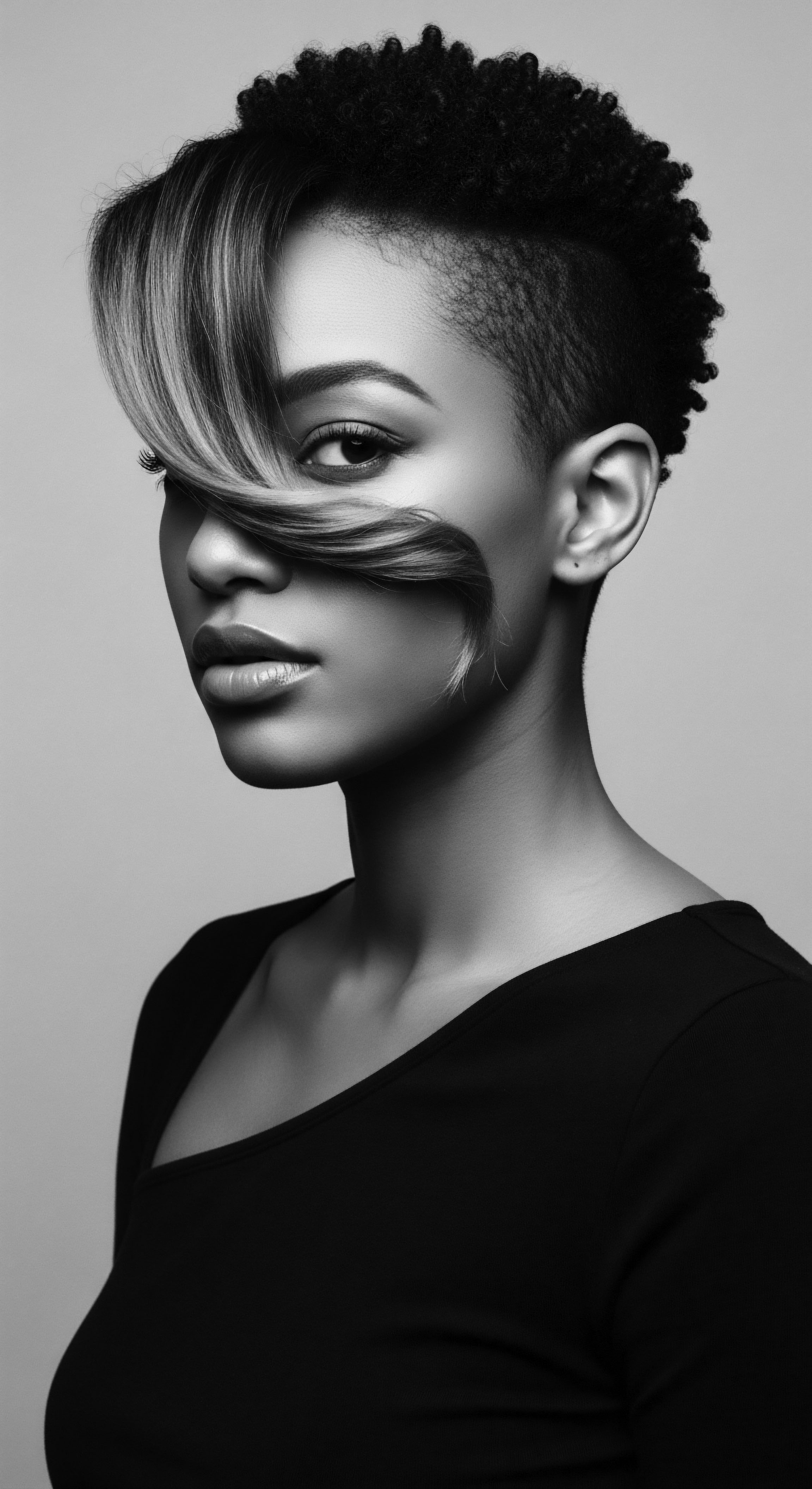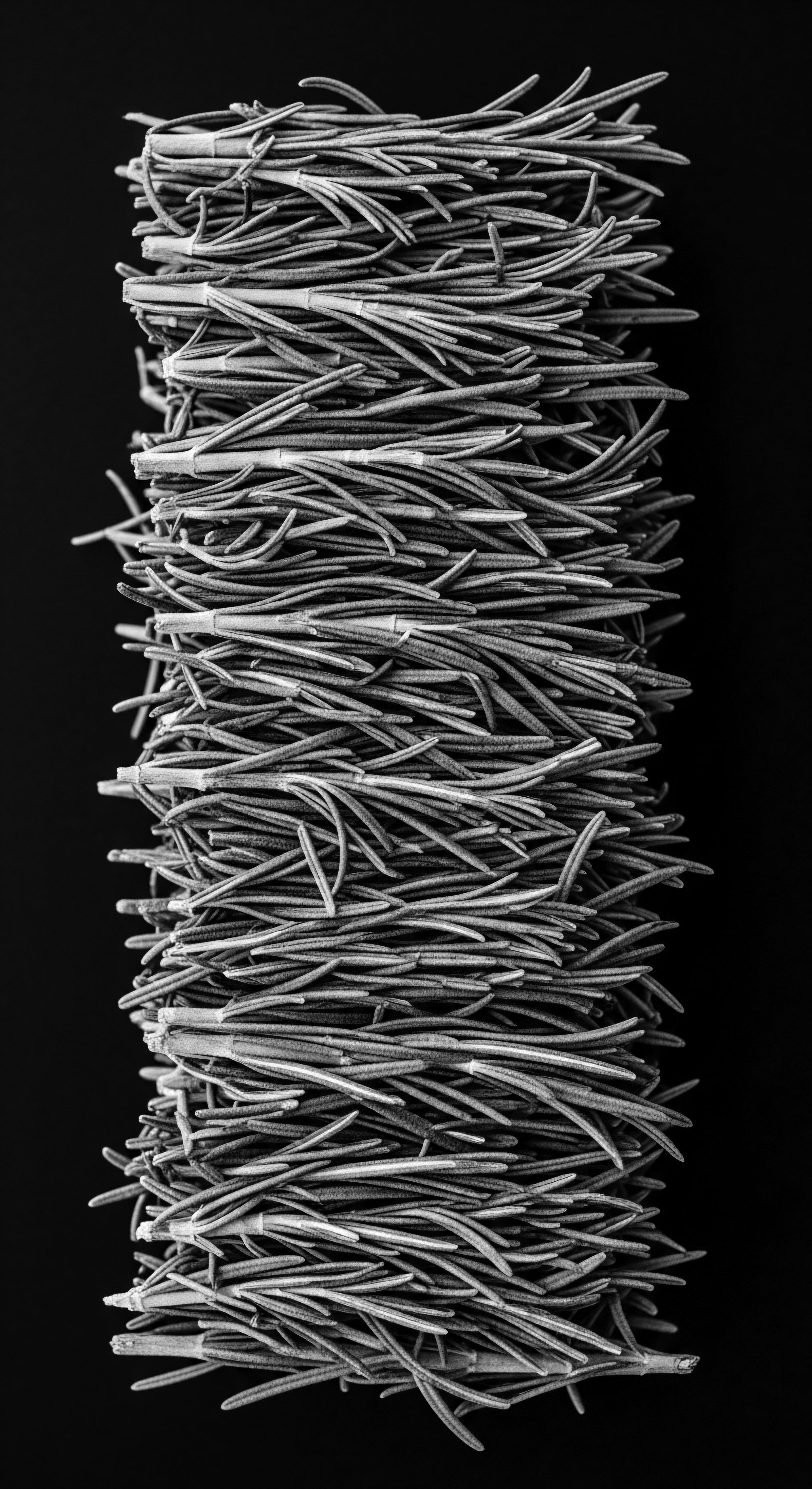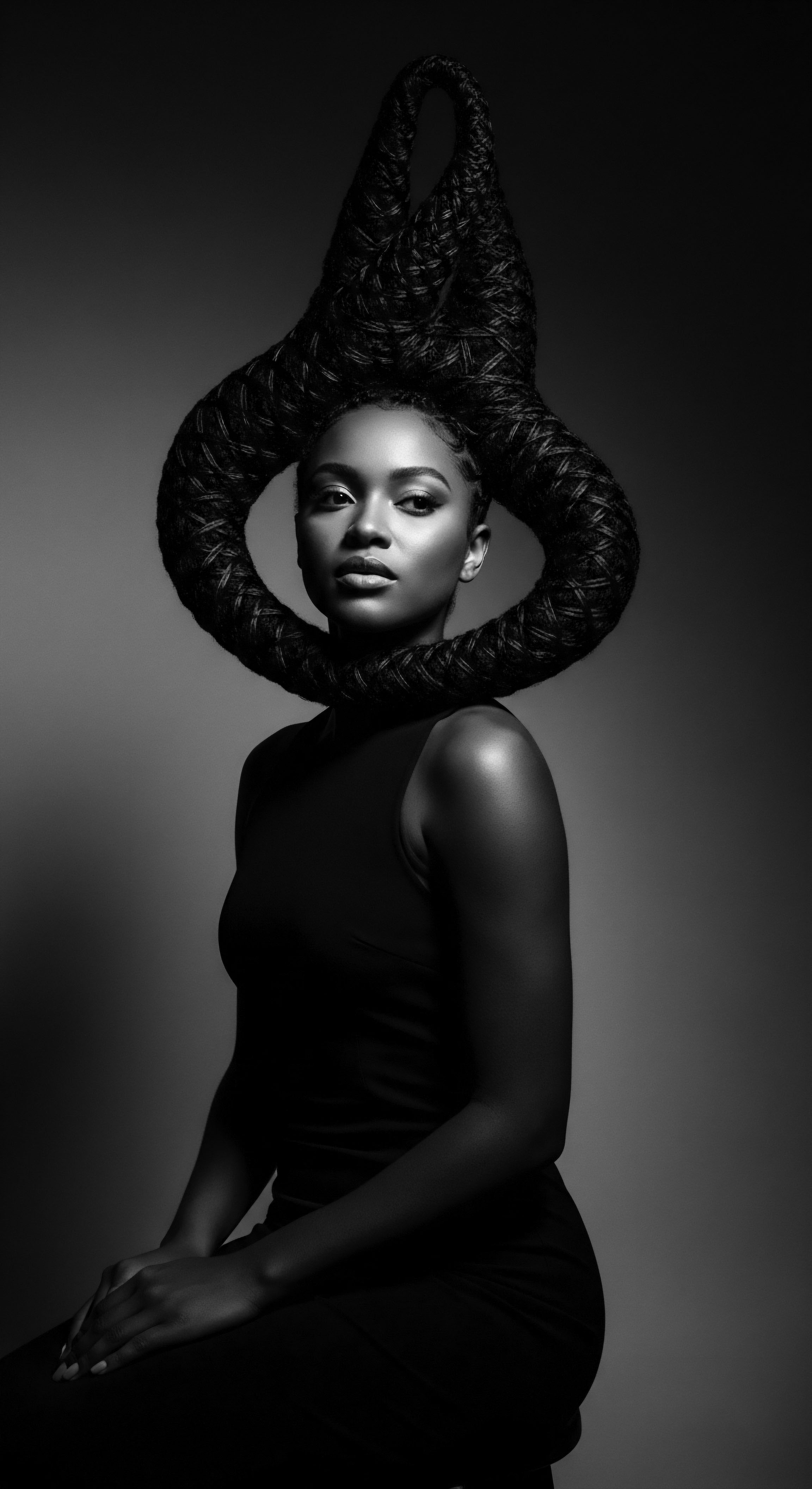
Roots
Consider, if you will, the profound intimacy held within a single strand of textured hair. It is not merely a biological filament, but a living archive, a whisper of lineage, carrying the stories of resilience, artistry, and spirited resistance across continents and generations. For those whose ancestry traces through the intricate pathways of the African diaspora, hair is a chronicle, each coil and curve a testament to a heritage both ancient and ever-present.
Within this deep, resonant connection, Black-owned businesses stand as formidable custodians and innovators, deeply impacting the textured hair economy in ways that transcend mere commerce. They are, in their very essence, guardians of this heritage, weaving ancestral wisdom into the fabric of modern care.
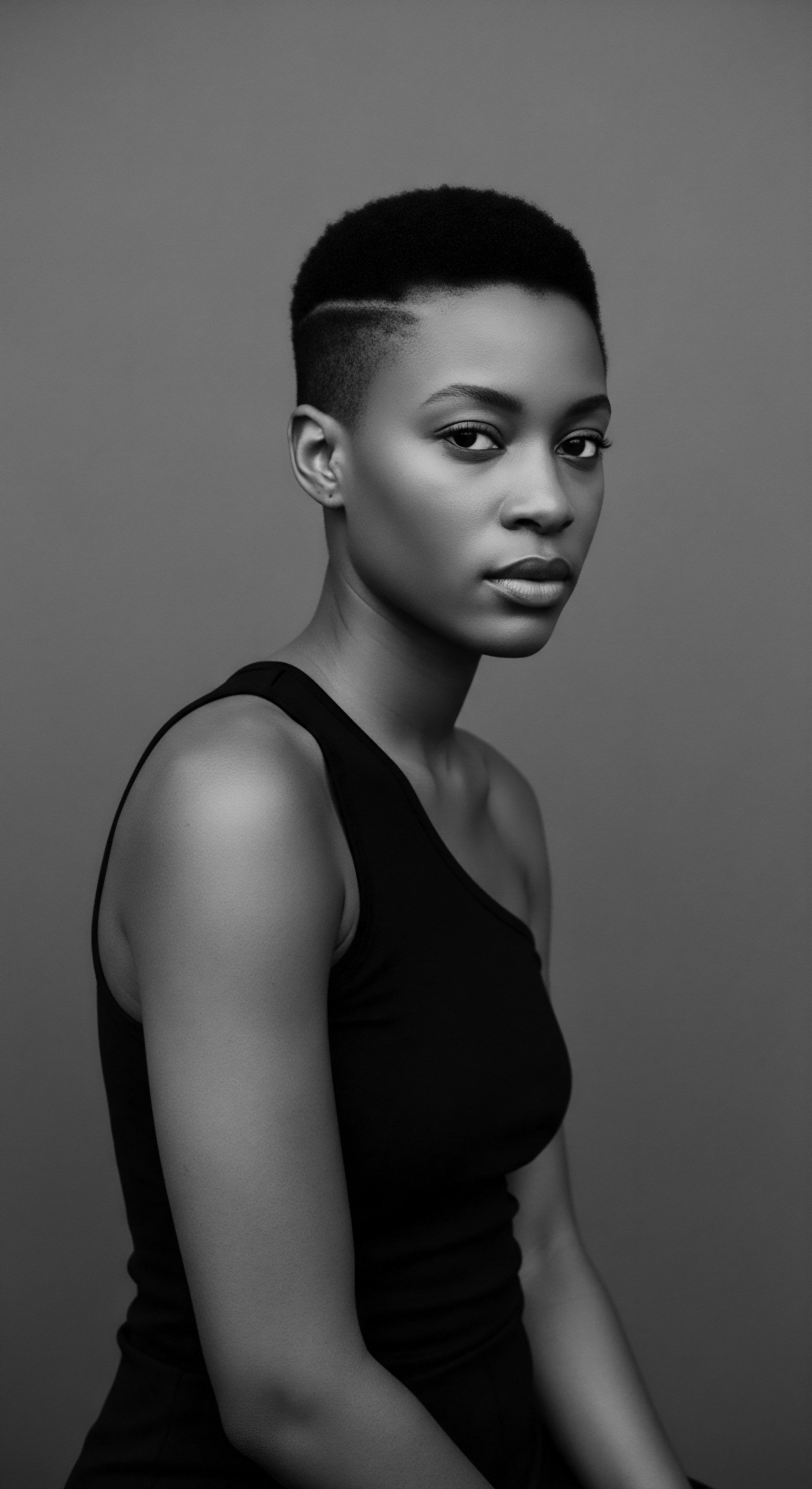
The Sacred Anatomy of Textured Hair
To truly grasp the influence of Black-owned businesses, we must first return to the very source: the hair itself. Textured hair, often described through its unique curl patterns from wavy to tightly coiled, possesses a singular anatomy that sets it apart. The elliptical shape of the follicle, the irregular distribution of keratin proteins, and the distinct curvature of the hair shaft result in a structure that is both glorious in its variability and particular in its requirements for moisture and strength. Ancestral communities, long before the advent of microscopes or modern chemistry, understood these properties intuitively.
They recognized the hair’s tendency towards dryness, its capacity for shrinkage, and its need for tender, deliberate nourishment. This deep, empirical understanding laid the foundation for generations of hair care practices rooted in observation and reverence.
Textured hair is a living chronicle, each coil and curve a testament to an ancient, enduring heritage.
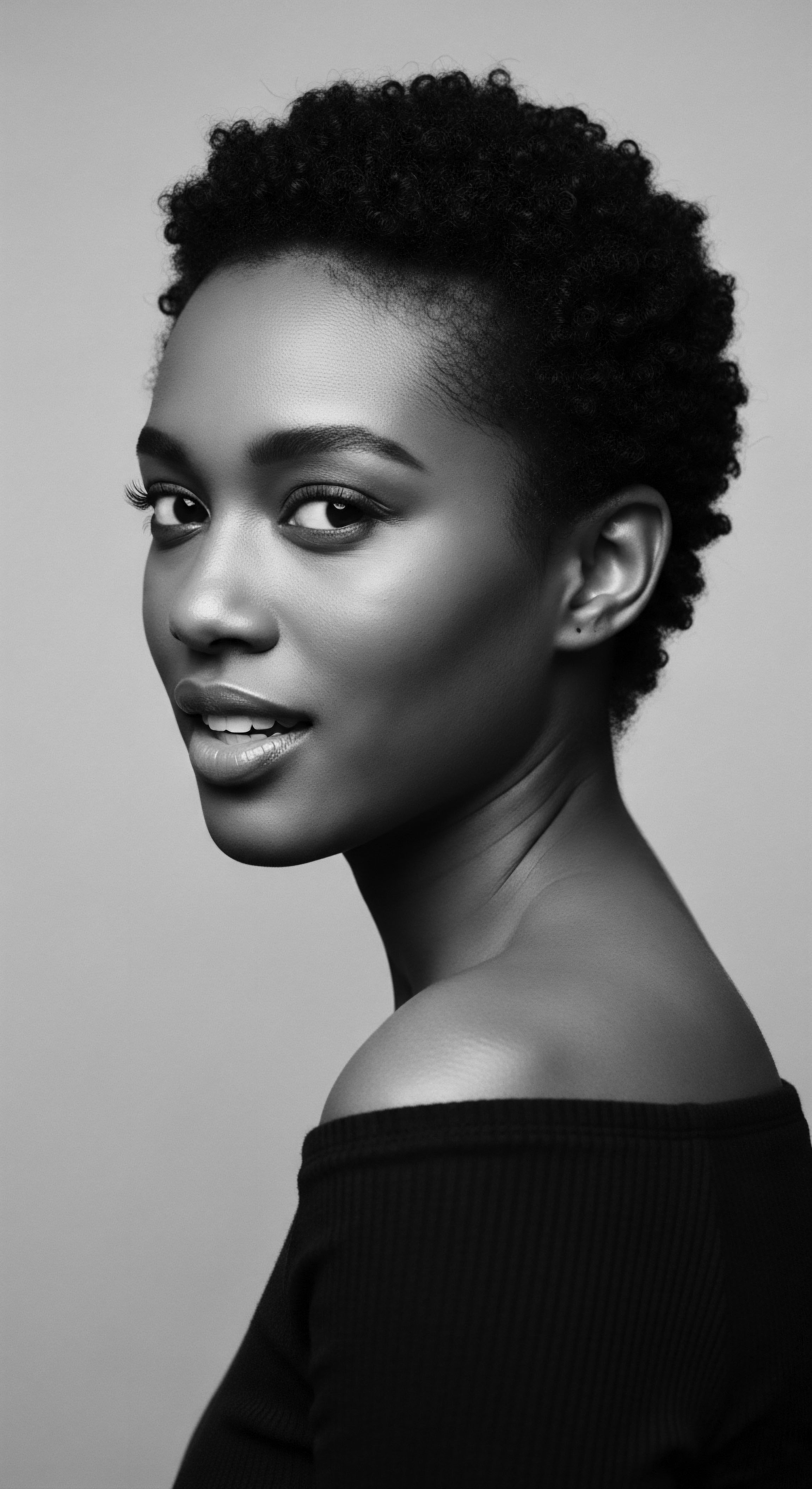
Naming the Strands a Heritage Lexicon
The contemporary language of textured hair, often categorized by numbers and letters (e.g. 4C, 3A), attempts to classify its myriad forms. However, the true lexicon of textured hair extends far beyond these modern systems, reaching back to traditional descriptors and the profound cultural meanings embedded in a particular curl. In various African cultures, terms for hair were not just about appearance but about social status, age, marital status, and spiritual connection.
For instance, the Yoruba of West Africa used hair as a canvas for intricate statements, with specific styles denoting membership or spiritual alignment. Black-owned businesses, often through their branding and educational initiatives, seek to reclaim and amplify this deeper, heritage-laden vocabulary. They honor terms that speak to the hair’s spirit ❉ its spring, its lustre, its cushion ❉ rather than solely its scientific classification.
- Oyin African Shea Butter: Revered for centuries for its emollient properties, it softens and protects hair, a staple in ancestral care.
- Chebe Powder Chadian Hair Ritual: Traditionally used by Basara women for hair length and strength, a practice now shared globally by Black-owned brands.
- Neem Oil Indian Ayurvedic Tradition: Known for its purifying qualities, it supported scalp health in ancient practices, a wisdom honored by modern formulations.
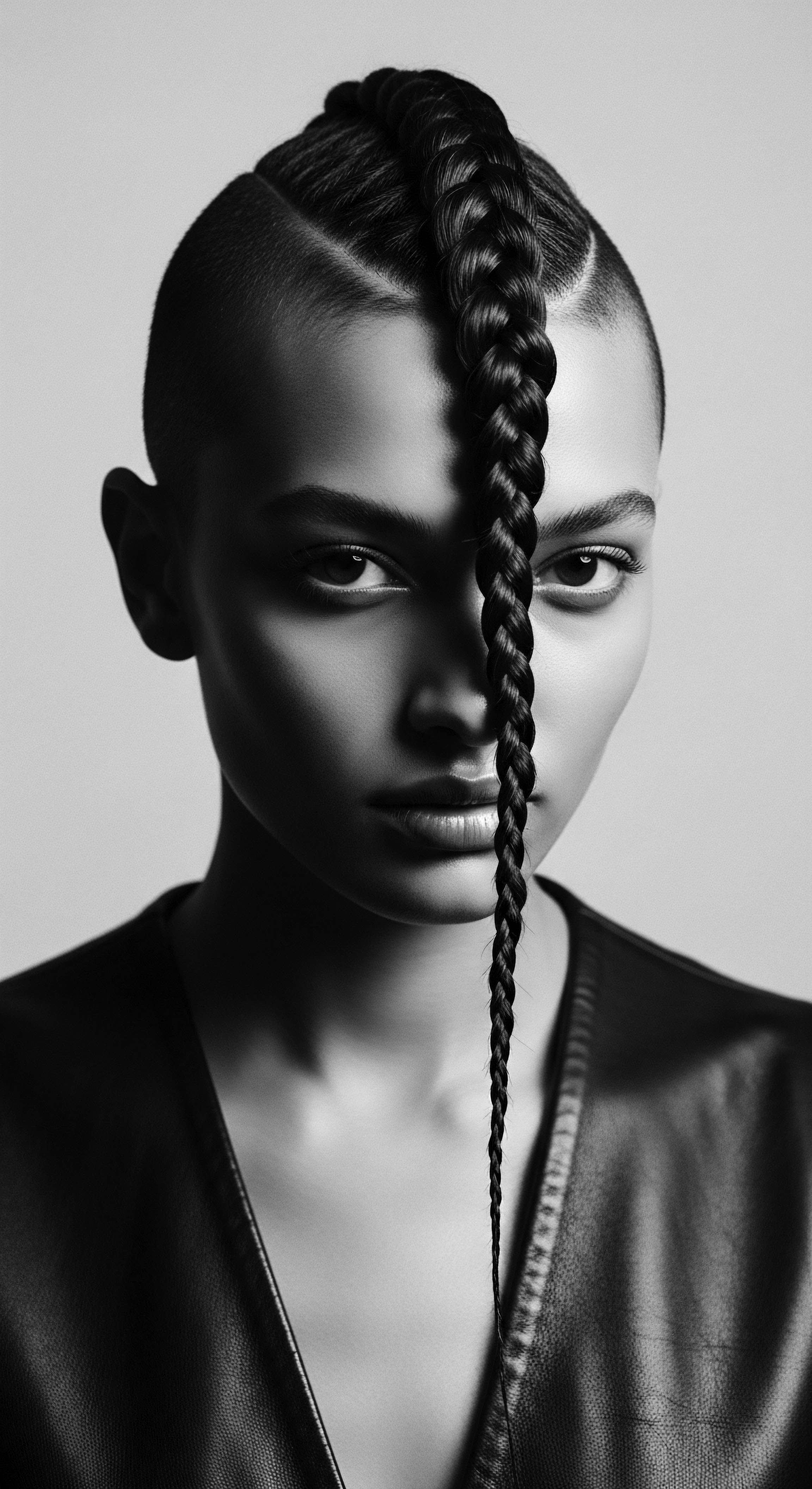
From Earth’s Bounty the Ancestral Ingredients
The earth itself offered the first laboratories for textured hair care. Communities across Africa and the diaspora learned to distill potent elixirs from natural resources. Shea butter, sourced from the karite tree, became a protective balm for skin and hair, its richness shielding against harsh elements.
Plantain peels, aloe vera, various clays, and a myriad of botanicals were carefully selected and prepared, each offering a specific benefit to the hair and scalp. These ingredients were not just functional; they were imbued with intention, often harvested and prepared with rituals that honored the earth and the recipient.
Black-owned businesses today are the torchbearers of this ingredient wisdom. They often prioritize these traditional ingredients, not as trends, but as a continuity of ancestral practice. They invest in ethical sourcing, often directly supporting African communities where these botanicals are cultivated, thereby creating an economic ripple that extends back to the very roots of the heritage. This commitment to provenance and purpose strengthens local economies while providing potent, time-tested solutions for textured hair.
It is important to remember the foundational impact of pioneers in this space. Madam C.J. Walker, for instance, a descendant of enslaved people, built an empire on products tailored for Black hair in the early 20th century. Her approach combined traditional insights with a groundbreaking business model that empowered thousands of Black women as sales agents (Bundles, 2001).
This enterprise created a powerful precedent, demonstrating how Black entrepreneurship could not only address specific beauty needs but also cultivate economic independence and cultural affirmation within the community. Her legacy, a profound act of self-determination, truly established a heritage of economic autonomy through Black-owned hair care.
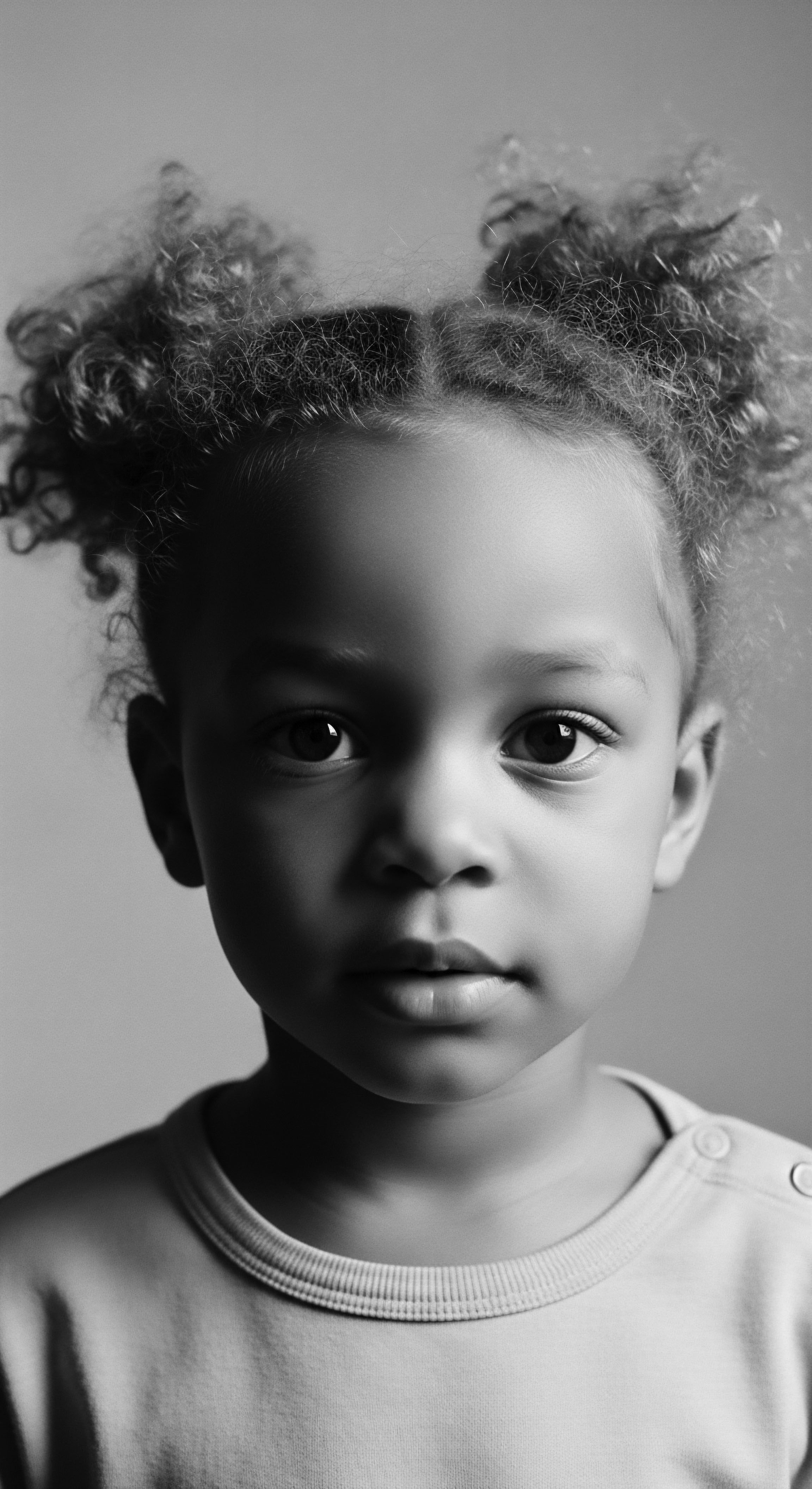
Ritual
Hair styling, for communities steeped in textured hair heritage, extends beyond mere aesthetics. It is a profound ritual, a language spoken through braids, twists, and coils that communicates identity, status, spirituality, and belonging. Every parting of the hair, every intricate plait, every adornment chosen, carries a history, a memory of hands that have shaped and tended strands for generations. Black-owned businesses in the textured hair economy stand as contemporary high priests and priestesses of this ritual, preserving ancestral techniques while also innovating with reverence.
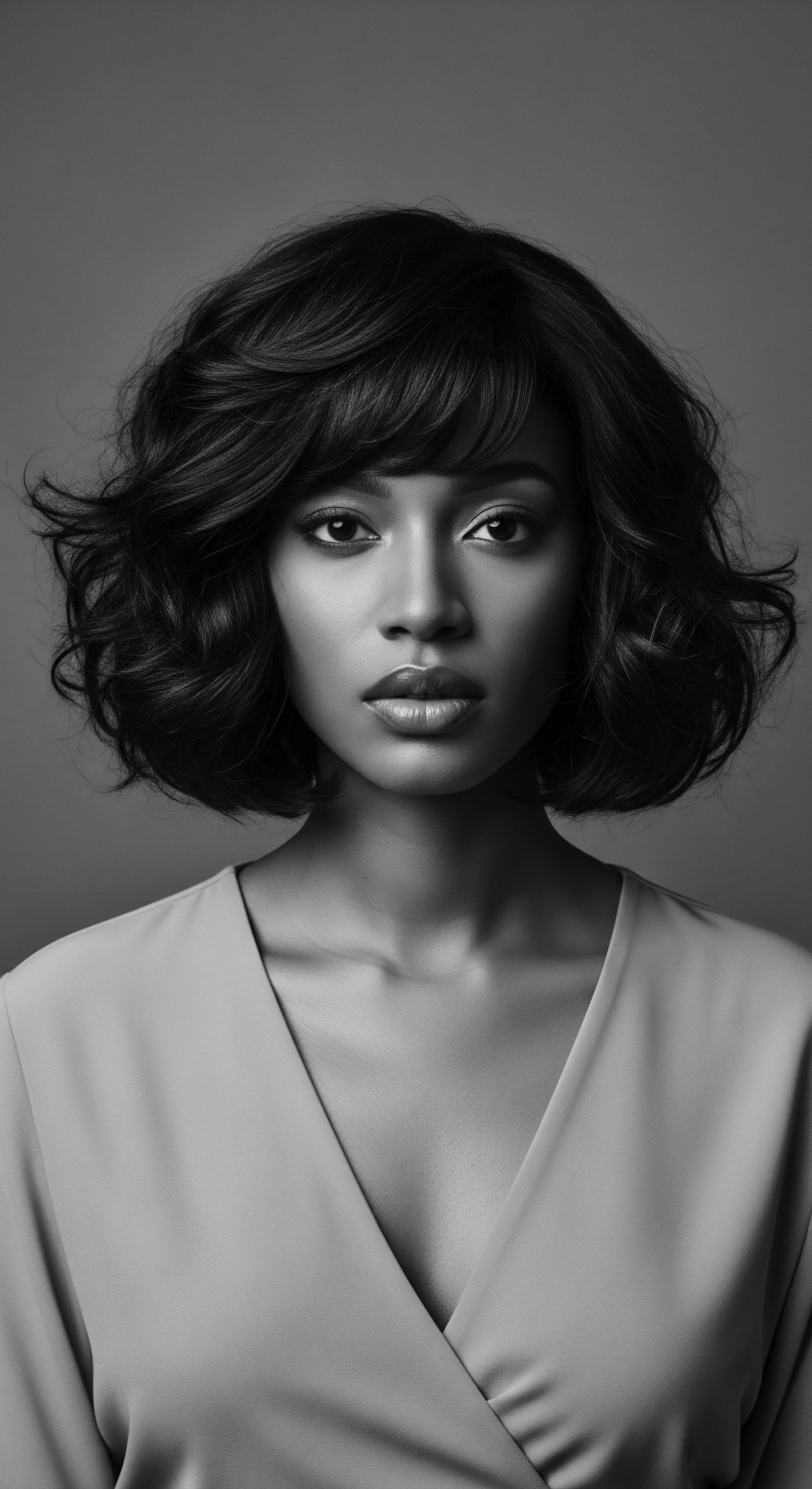
Protective Styles a Timeless Shield
The art of protective styling has served as a shield, both physical and cultural, for centuries. From the ancient Egyptian cornrows depicted on sarcophagi to the elaborate braided topknots of the Mangbetu people of Central Africa, these styles guarded the hair from environmental damage while communicating complex social narratives. In the diaspora, protective styles became a testament to resilience, a way to maintain hair health and dignity even in adverse conditions.
Today, Black-owned salons and stylists are the primary architects of this living tradition. They teach, perfect, and popularize styles like box braids, kinky twists, and faux locs, ensuring that the knowledge of their creation and care passes from one generation to the next. These businesses often serve as community hubs, where the act of getting one’s hair done is a shared experience, a continuation of communal grooming rituals that stretch back to village life. They are spaces of conversation, learning, and cultural exchange, where the heritage of hair is not just discussed but actively lived.
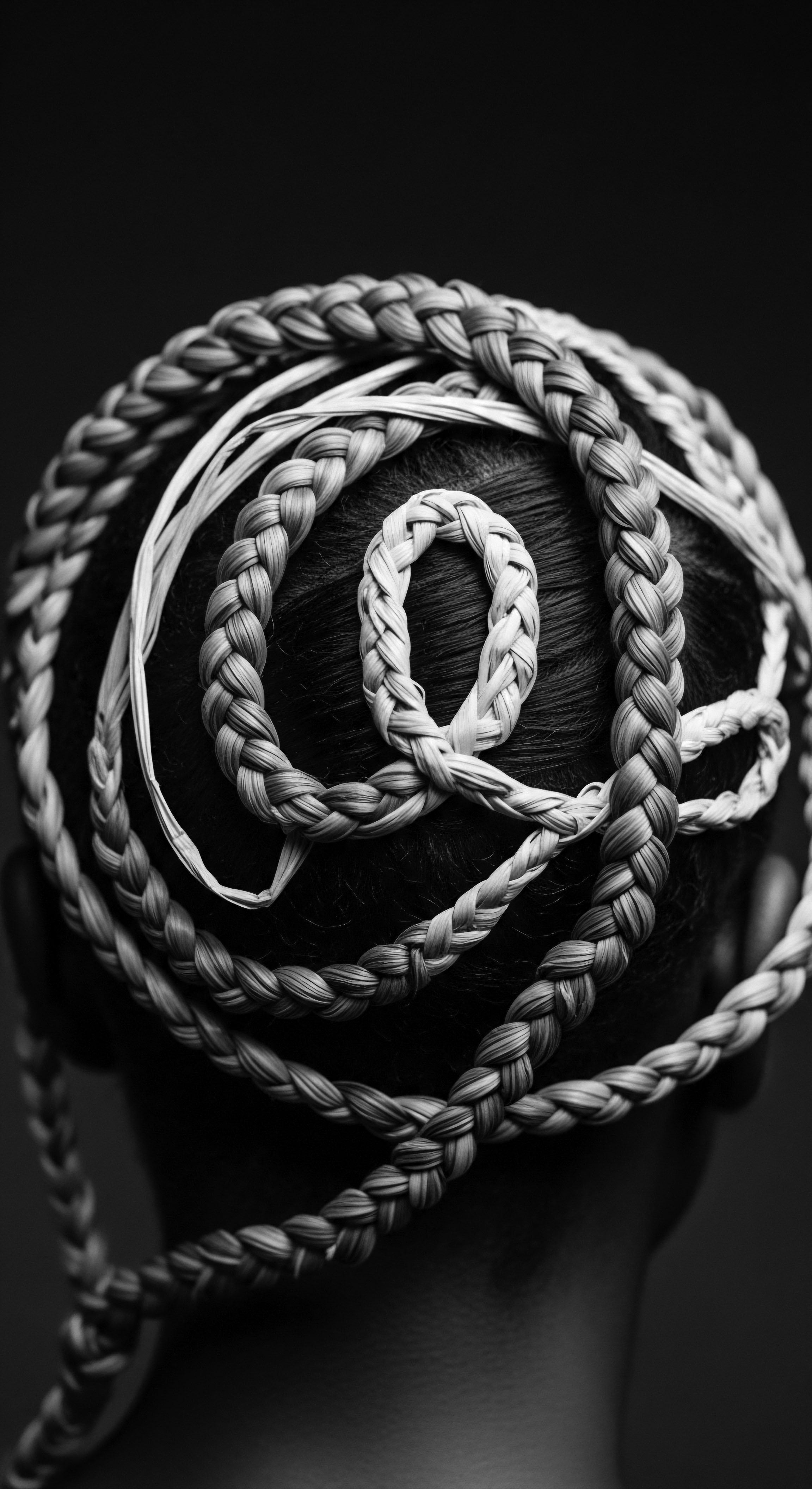
Natural Styling and Defining Texture’s True Shape
The return to natural hair, a profound movement rooted in self-acceptance and cultural reclamation, has been significantly propelled by Black-owned businesses. For centuries, societal pressures often dictated the alteration of natural textures. The natural hair movement, however, championed the hair’s intrinsic shape, celebrating coils, curls, and kinks in their unadulterated form.
Hair styling is a profound ritual, a language spoken through braids, twists, and coils that communicates identity and belonging.
Black-owned brands have developed specialized products that enhance natural texture without altering it. These companies formulate products specifically designed to provide slip, definition, and moisture, allowing individuals to truly see and honor their hair’s natural blueprint. They have educated consumers on techniques like wash-and-go styling, twist-outs, and braid-outs, providing the tools and knowledge necessary for individuals to connect with their inherent hair identity. This segment of the textured hair economy is a testament to cultural pride, with businesses serving as vital educators and product providers for a journey of self-discovery through hair.
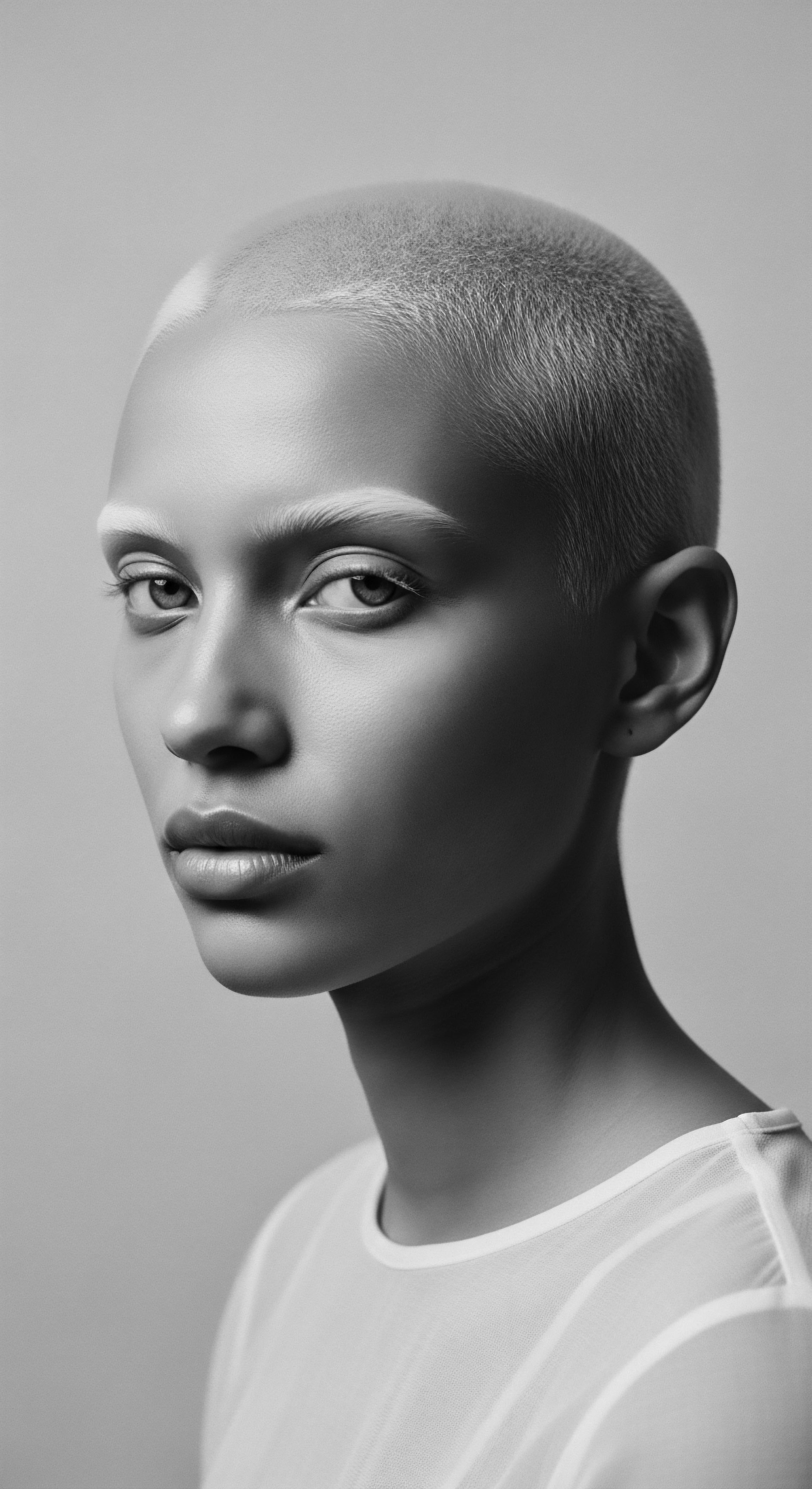
Wigs and Adornments Echoes of Ancestral Royalty
The use of wigs and hair extensions, while often viewed as a contemporary trend, holds deep ancestral roots. In many African societies, hair adornments, extensions, and false hair pieces were markers of status, beauty, and ritual significance. Elaborate coiffures, often augmented with fibers, beads, and precious metals, communicated wealth, power, and tribal affiliation.
Black-owned businesses have reclaimed and innovated within the wig and extension market, transforming it into a powerful tool for stylistic expression and hair health. They offer a diverse range of textures that seamlessly blend with natural hair, providing protective options for those seeking to minimize manipulation or explore different looks without commitment. These businesses often center on quality, ethical sourcing of hair, and educating consumers on the proper care and maintenance of these pieces, ensuring they are treated not as disposable items, but as valuable extensions of one’s personal style and heritage.
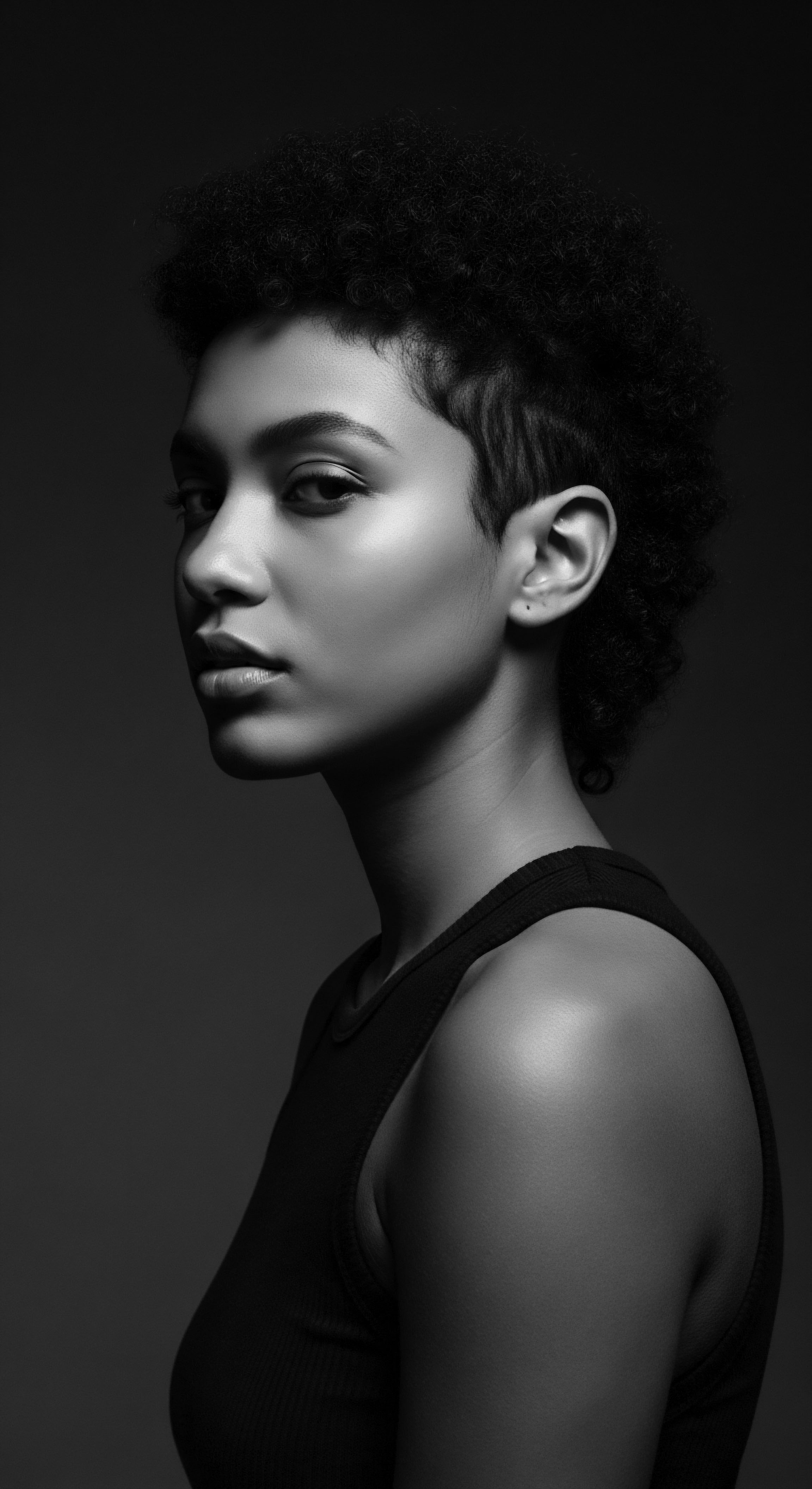
Heat and the Delicate Balance
While the focus of textured hair care has largely shifted towards celebrating natural patterns, the historical use of heat for straightening hair remains a significant part of the collective memory. From the practice of “pressing” hair with heated combs in the early 20th century to modern thermal reconditioning, this aspect of hair care has often been fraught with tension between conformity and self-expression.
Black-owned businesses approach this segment with a particular consciousness. They often prioritize education on heat protectants, proper technique, and the importance of minimal heat exposure to preserve hair integrity. Many offer heat styling services that are executed by stylists deeply familiar with the nuances of textured hair, aiming for a temporary alteration that does not compromise the hair’s natural elasticity. This thoughtful approach reflects a dedication to both versatility and the inherent health of the hair, acknowledging a complex historical relationship while advocating for contemporary well-being.
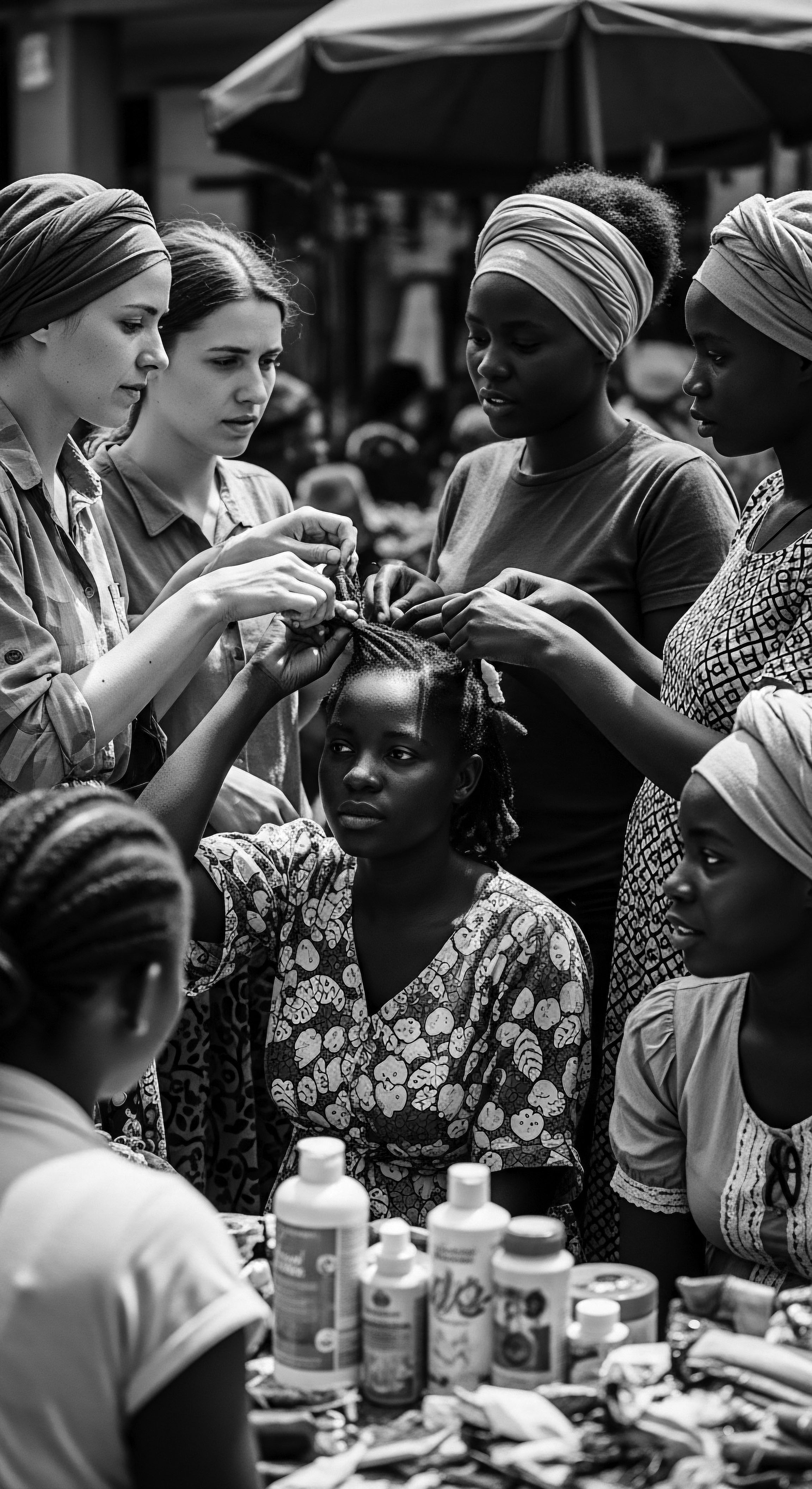
Relay
The journey of textured hair care is not a sprint; it is a relay, a continuous handing off of knowledge, products, and philosophies from one generation to the next, from one community to another. This relay, deeply steeped in ancestral wisdom, transcends simple routines; it encompasses holistic wellness, nighttime rituals, and the discerning use of nature’s bounty to nurture the hair and the spirit. Black-owned businesses are the vital runners in this enduring race, ensuring that the legacy of care is not only preserved but dynamically evolved.
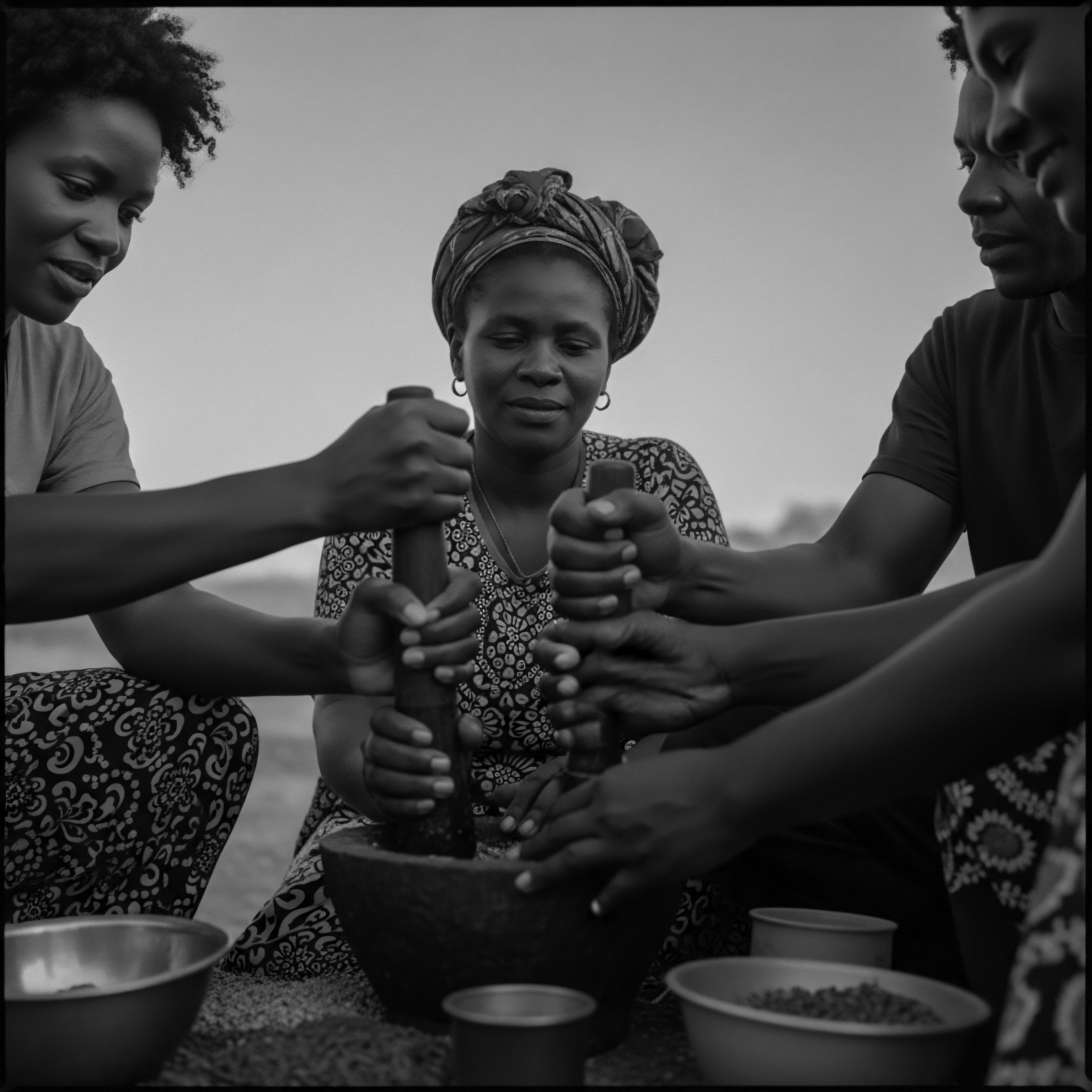
Building Regimens with Ancestral Echoes
A personalized hair regimen, tailored to the unique needs of one’s textured strands, is the bedrock of healthy hair care. Historically, these regimens were guided by seasonal changes, local resources, and the wisdom passed down through elders. The rhythmic application of natural oils, the careful detangling sessions, the celebratory washing days ❉ these were not arbitrary acts but responses to the hair’s intrinsic requirements, informed by generations of communal experience.
Black-owned businesses craft product lines that honor this ancestral understanding. They offer comprehensive systems ❉ shampoos that gently cleanse, conditioners that deeply hydrate, and stylers that protect ❉ all designed to work in concert. Their formulations often prioritize ingredients celebrated in traditional practices, such as African black soap for cleansing, cocoa butter for moisture, and various herbal infusions for scalp vitality. These businesses provide clear guidance on how to sequence products, encouraging a mindful, consistent approach to hair care that mirrors the intentionality of ancestral rituals.
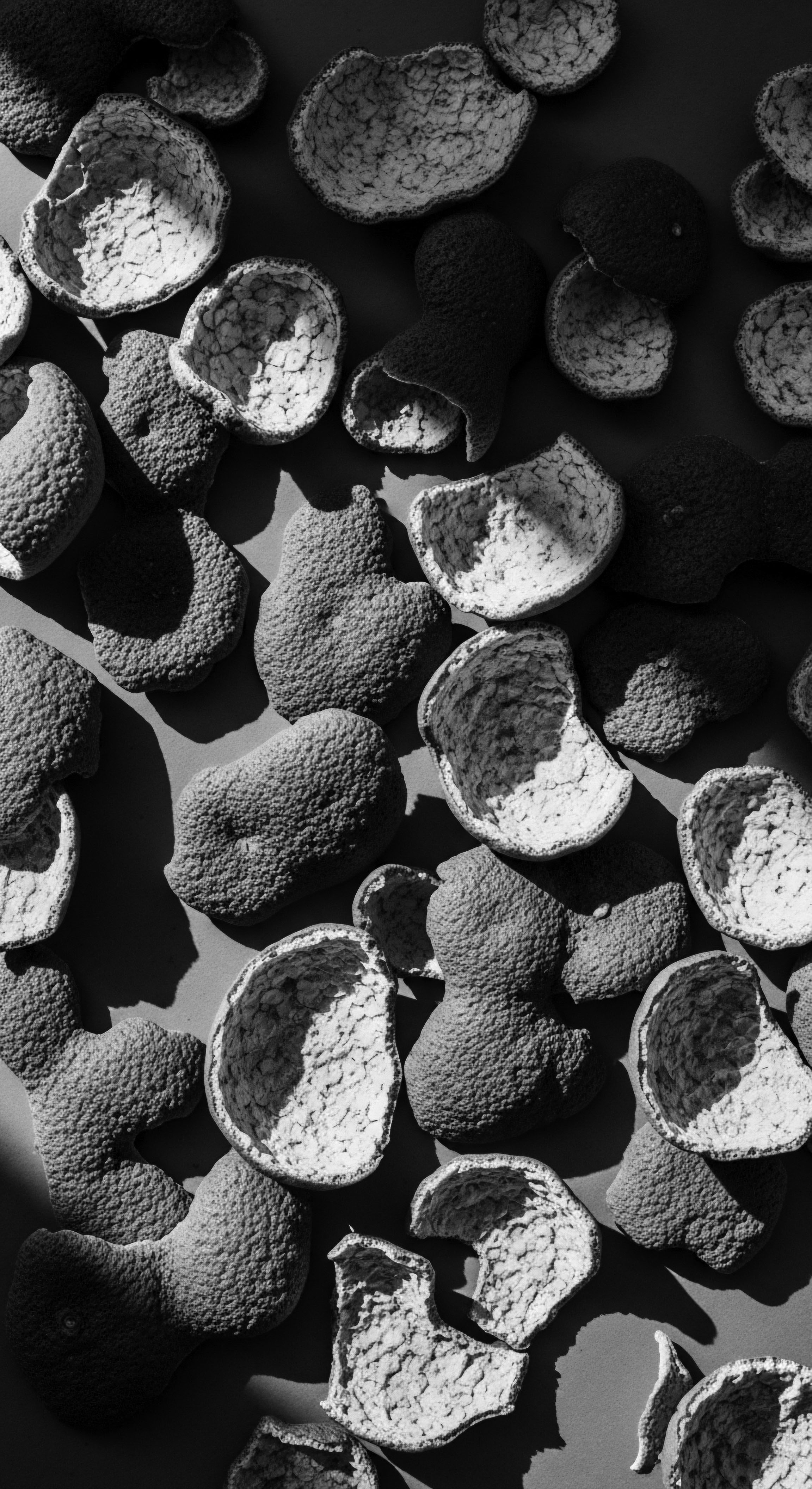
The Nighttime Sanctuary Bonnet Wisdom
Perhaps no single item in the modern textured hair toolkit carries as much cultural and practical weight as the bonnet. This seemingly simple head covering, along with scarves and wraps, represents a continuation of ancient practices of hair protection and preservation during sleep. In many African cultures, hair was meticulously styled and protected overnight to maintain its form and prevent damage, reflecting the immense value placed upon it.
The nightly ritual of hair protection, often with a satin bonnet, safeguards textured strands and honors an ancestral legacy of care.
Black-owned businesses have elevated the bonnet from a mere utility to a fashion statement and a symbol of self-care. They design bonnets and scarves in luxurious fabrics like satin and silk, known for their ability to reduce friction and retain moisture, crucial for fragile textured hair. These businesses educate consumers on the scientific benefits of nighttime protection ❉ preventing breakage, preserving styles, and maintaining hydration.
They transform a practical necessity into a beloved ritual, affirming the simple yet profound act of nurturing one’s hair even while one rests. This enduring presence of protective nighttime wear is a direct line to a rich ancestral wisdom, now made accessible and stylish by Black entrepreneurs.
Consider the economic impact of this singular item. The market for satin bonnets, headwraps, and pillowcases, largely driven by the textured hair community, is a testament to the power of addressing specific cultural needs. Black-owned businesses have not only captured a significant portion of this market but have also pushed for innovation in design, fabric, and sizing, ensuring offerings cater to diverse hair volumes and styles. This niche, yet substantial, segment demonstrates the agility and responsiveness of Black entrepreneurs in serving their community’s distinct requirements.
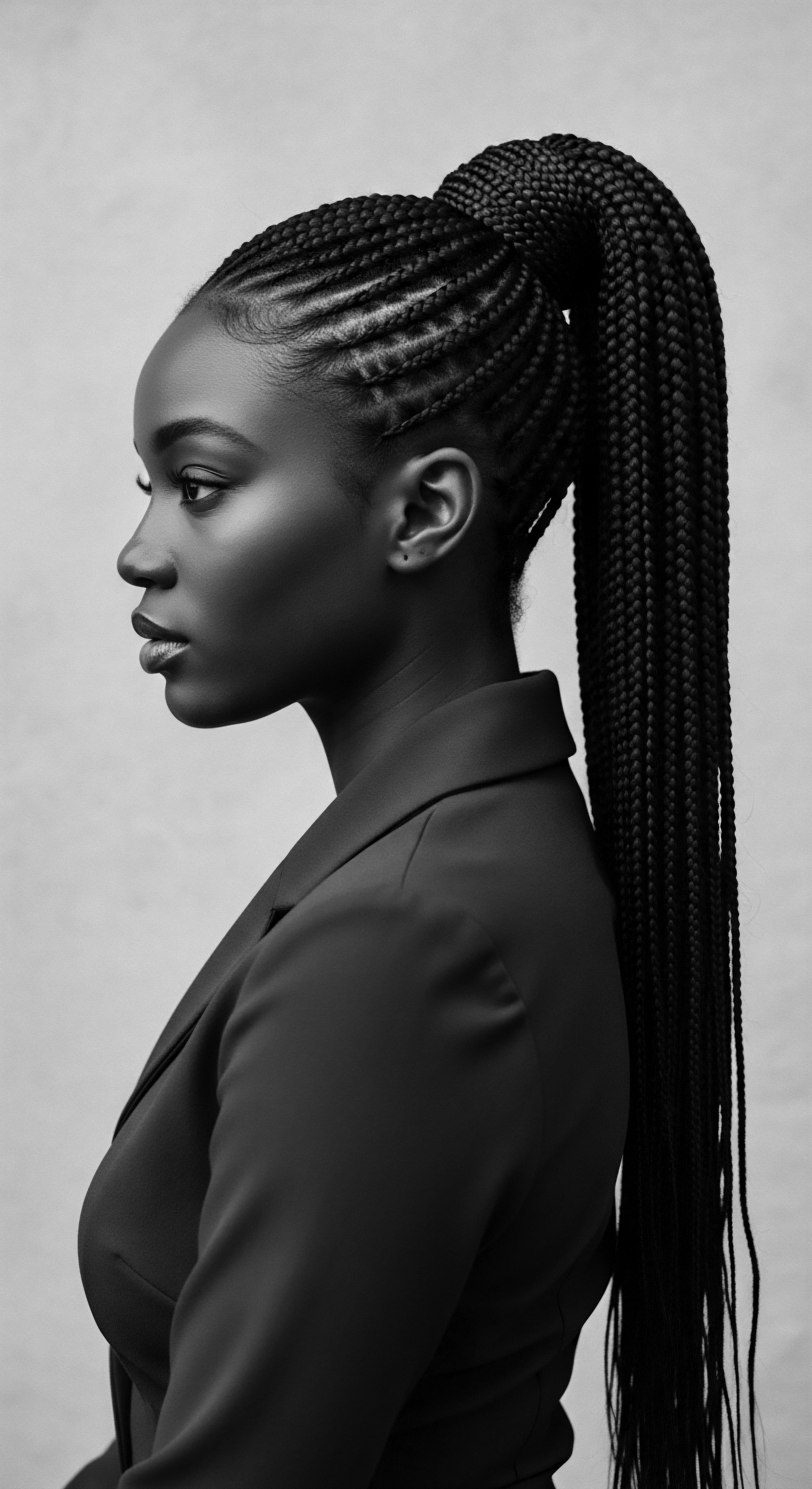
Ingredient Wisdom a Tapestry of Healing
The efficacy of many modern textured hair products can be traced back to the ingredient wisdom cultivated over centuries in African and diasporic communities. Before scientific laboratories, the natural world was the pharmacy. Ingredients like baobab oil, known for its omega fatty acids and restorative properties, or marula oil, prized for its lightweight moisture, were part of a deep, experiential knowledge passed down orally. These were not just conditioners; they were elixirs, often prepared with reverence and understanding of their complete benefits for the body.
Black-owned beauty companies are at the forefront of reintroducing and popularizing these ancestral ingredients. They invest in research to validate traditional uses with modern scientific understanding, bridging the gap between ancient remedies and contemporary formulation. Their commitment extends beyond surface-level inclusion; they often seek out ethical supply chains, empowering local communities in Africa and the Caribbean that cultivate these botanical treasures. This practice not only provides high-quality ingredients but also strengthens economic ties to the ancestral lands, creating a reciprocal relationship that honors heritage and promotes sustainable growth.
- Shea Butter Derived from the nut of the African shea tree, it is a potent emollient, rich in vitamins A, E, and F, traditionally used to seal moisture.
- Aloe Vera A succulent plant whose gel soothes the scalp and provides hydration, a staple in many ancient healing practices.
- Coconut Oil A versatile oil, widely used across tropical regions for its penetrative properties, strengthening hair from within.
- Rosemary An herb historically used for its stimulating properties, believed to support healthy hair growth and circulation.
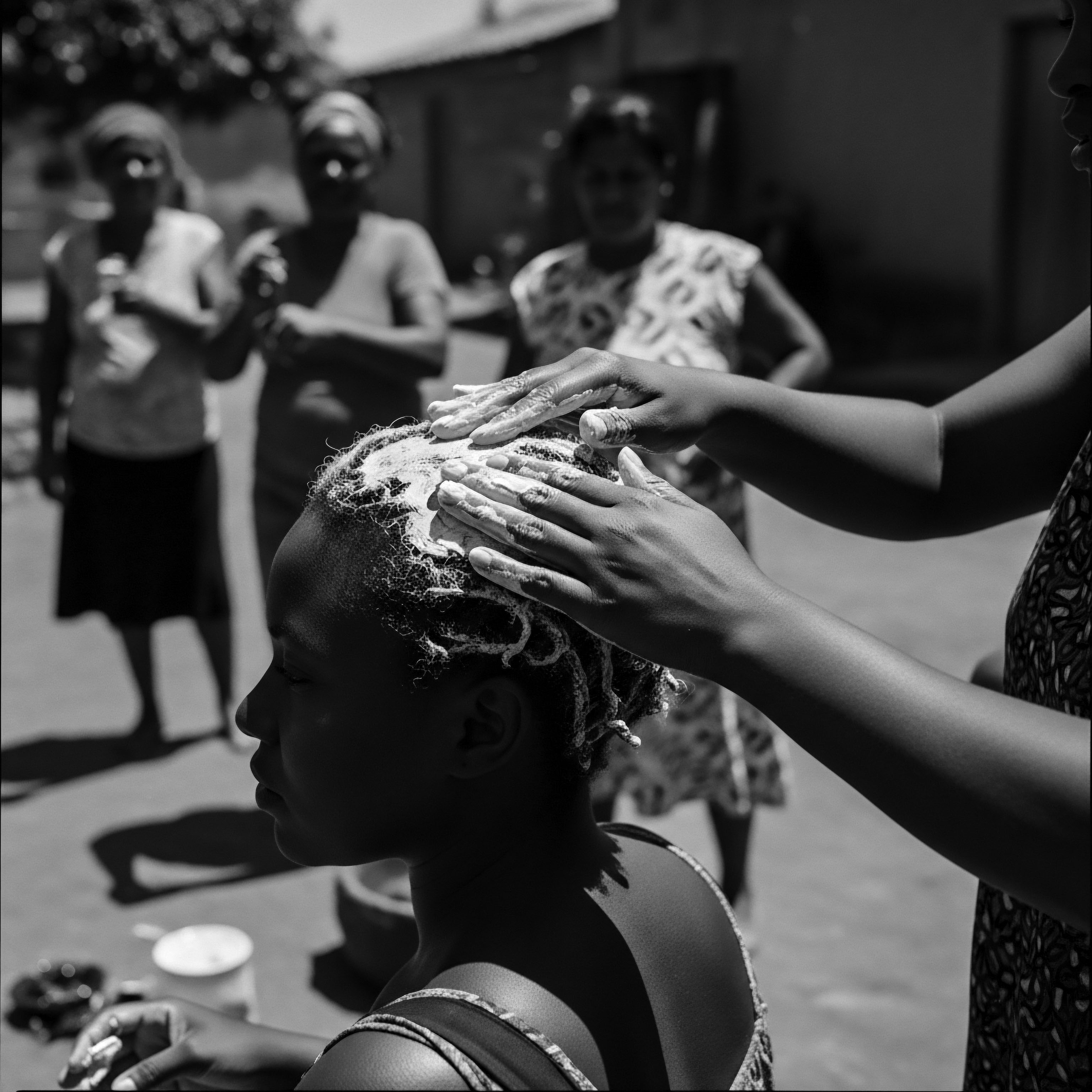
Beyond Products Holistic Hair Health
The concept of hair wellness in ancestral traditions was rarely isolated from overall well-being. Diet, stress levels, spiritual harmony, and community connection were all understood to influence the vitality of hair. A strong, lustrous mane was often seen as an outward manifestation of inner balance and health.
Black-owned businesses often integrate this holistic perspective into their brand ethos. They offer more than just products; they provide platforms for education on nutrition, stress management, and the importance of a supportive community in one’s hair journey. Many host workshops, create content, or partner with wellness professionals to address the broader factors that impact hair health.
This commitment to a comprehensive approach mirrors the wisdom of past generations, ensuring that the relay of knowledge addresses not just the strands themselves, but the whole person who carries them. They are champions of the belief that true hair radiance stems from a place of deep, internal equilibrium, a heritage wisdom they actively share.
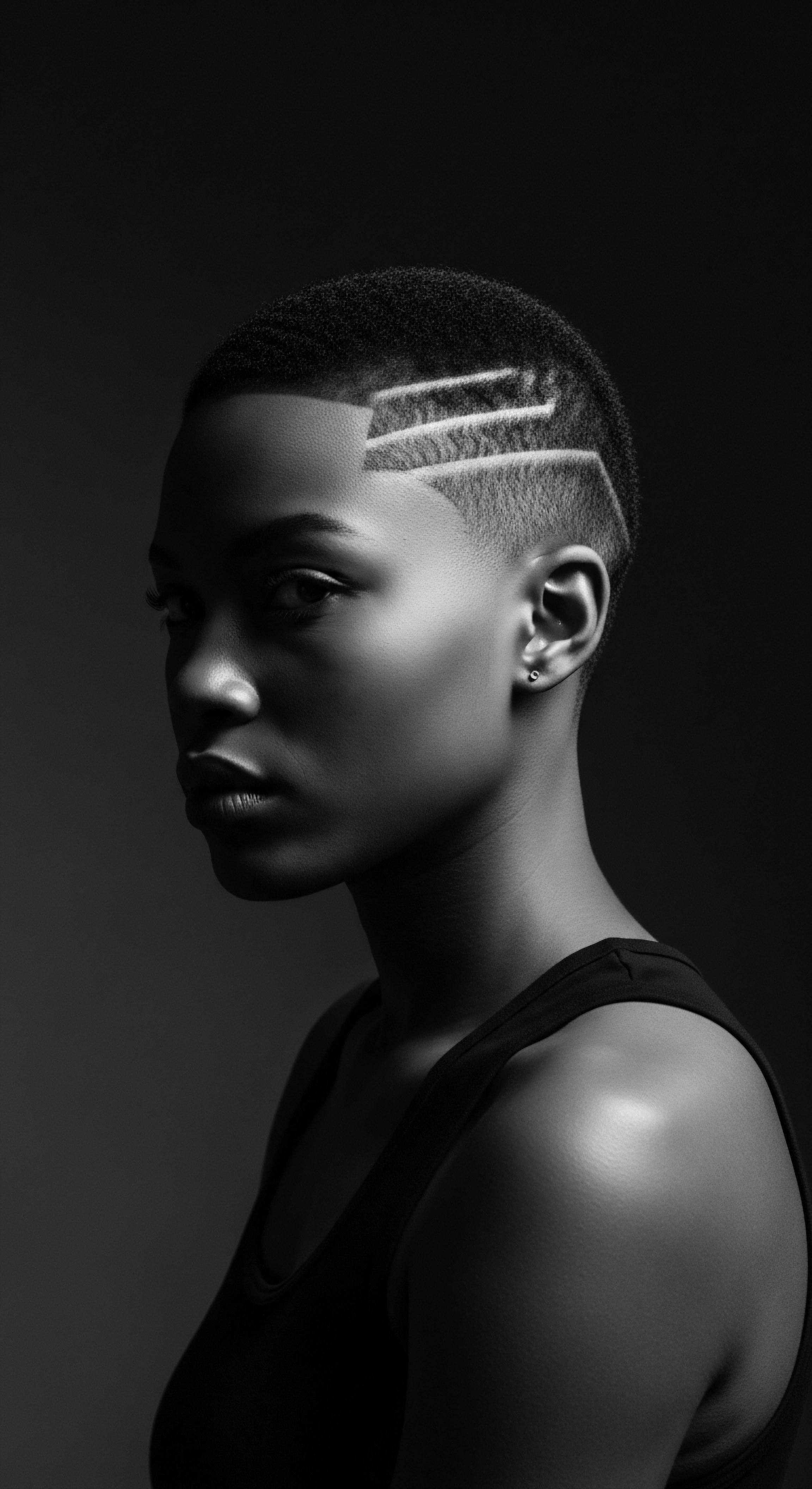
Reflection
As we consider the journey of textured hair through the ages, and the contemporary vigor brought by Black-owned businesses, a profound truth emerges. The textured hair economy, at its deepest core, is a living, breathing archive of identity, resilience, and boundless creativity. These businesses are not merely commercial entities; they are continuations of a long, courageous lineage. They stand as vital conduits, channeling ancestral wisdom and cultural pride into tangible products and services that nourish not only the hair itself, but the very spirit of those who wear it.
The impact is multifaceted, economic certainly, but also profoundly social and psychological. They provide economic opportunity within communities often underserved by mainstream markets. They create spaces of belonging, where the unique beauty of textured hair is affirmed and celebrated without compromise.
They educate, empower, and equip individuals with the knowledge and tools to honor their heritage through the daily ritual of hair care. The textured hair economy, shaped by Black-owned businesses, is therefore a powerful testament to the enduring ‘Soul of a Strand’ ❉ a celebration of its past, a vibrant force in its present, and a hopeful promise for its unfolding future, ever echoing the wisdom of generations past.
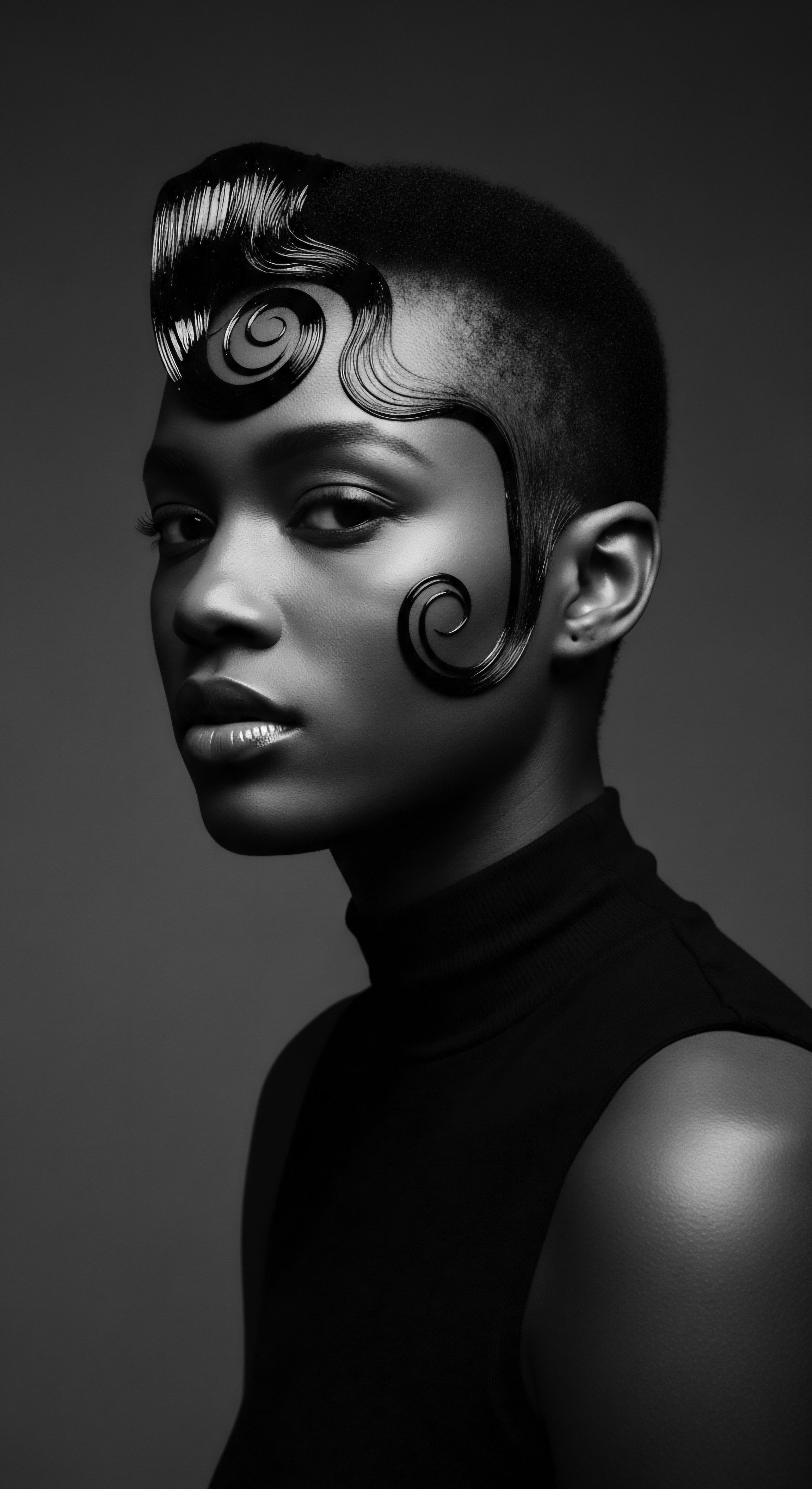
References
- Bundles, A’Lelia Perry. 2001. On Her Own Ground: The Life and Times of Madam C.J. Walker. Scribner.
- Byrd, Ayana, and Lori L. Tharps. 2014. Hair Story: Untangling the Roots of Black Hair in America. St. Martin’s Press.
- Mercer, Kobena. 1994. Welcome to the Jungle: New Positions in Black Cultural Studies. Routledge.
- Patton, Tracey. 2006. African-American Hair: A History of Style, Culture, and Commerce. University Press of Mississippi.
- White, Shane, and Graham White. 1998. Stylin’: African American Expressive Culture From Its Beginnings To The Zoot Suit. Cornell University Press.

